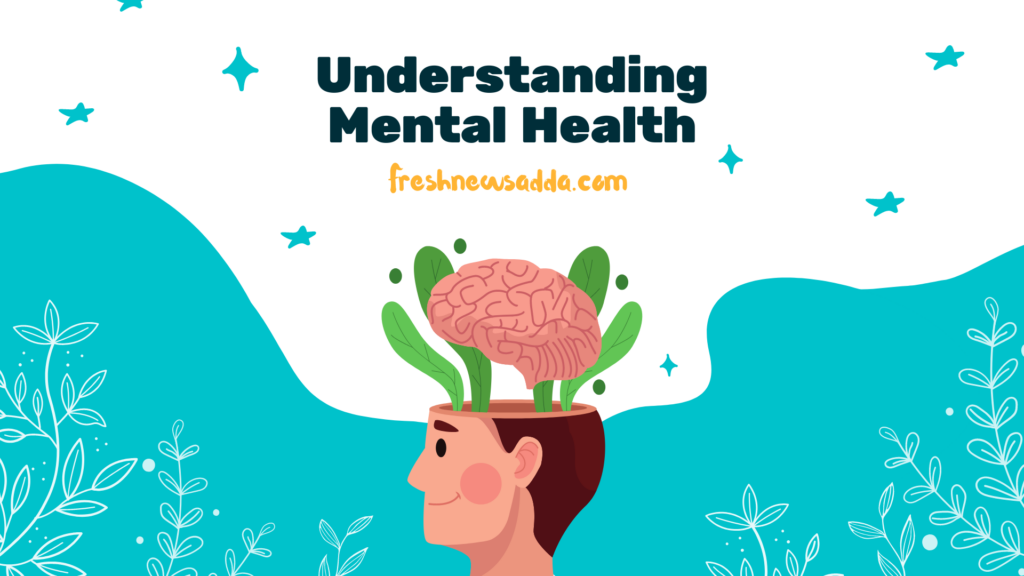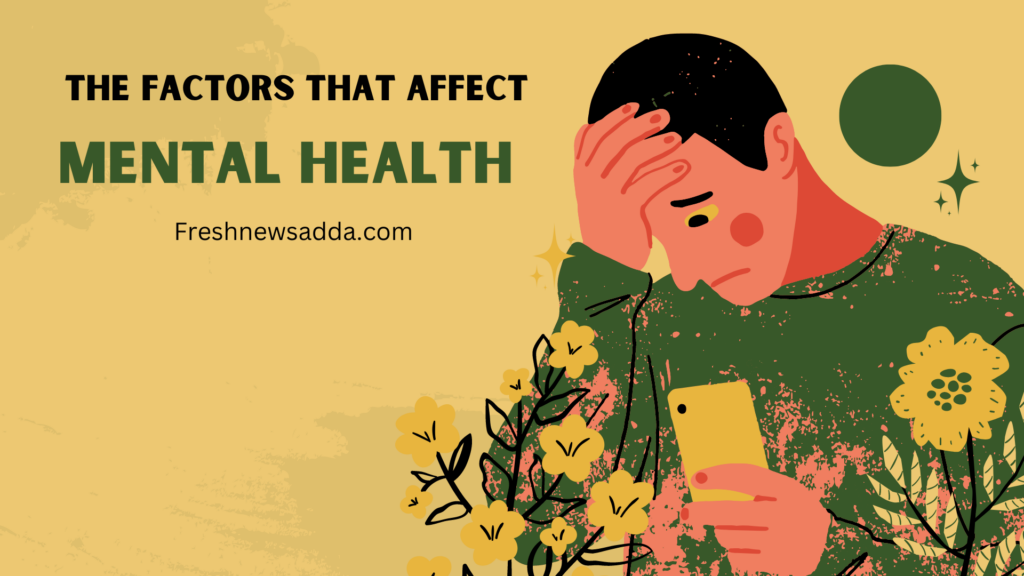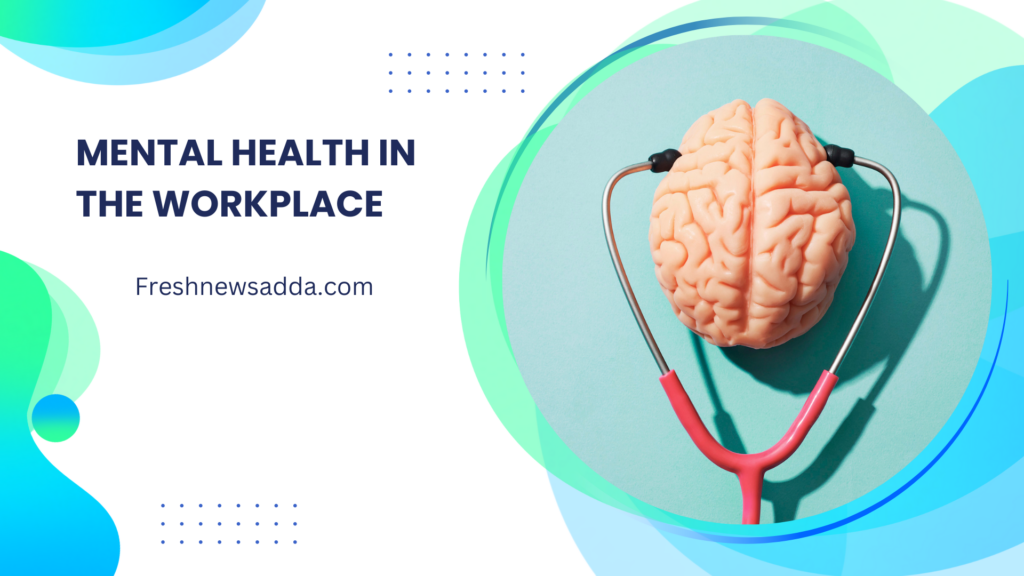Introduction
As the world becomes more complex and fast-paced, mental health has become a growing concern. For many people, this means a struggle with mental illness, while for others, it means learning how to cope with stress and anxiety.
At its core, mental health has an important impact on physical well-being, and understanding how to care for our minds is essential for living a healthy and fulfilling life.
Understanding Mental Health

Mental health can be defined as the state of feeling emotionally and mentally balanced. It is the ability to manage and cope with stress, relationships, and daily life activities. It is more than just the absence of mental illness, and it encompasses the ability to thrive in all aspects of life.
Mental health can be thought of as a spectrum, with some individuals experiencing optimal mental health, while others experience varying degrees of mental illness. Common mental health issues include depression, anxiety, bipolar disorder, and schizophrenia. Each of these illnesses presents unique challenges and symptoms.
The Factors that Affect Mental Health

Many factors can contribute to an individual’s mental health. Genetics, for example, can play a significant role in mental health disorders, as certain genes may make individuals more susceptible to mental illness.
Environment also plays a critical role, as individuals who experience trauma or stressful events may be more likely to develop mental illness. Lifestyle factors such as diet, exercise, and sleep can all impact mental health, and individuals who maintain healthy habits tend to have better mental health outcomes.
The Effects of Poor Mental Health on the Body
Poor mental health can have significant physical effects on the body. Chronic stress, for example, can lead to increased levels of cortisol, which can harm the immune system. Additionally, poor mental health can increase an individual’s risk of physical ailments such as heart disease, diabetes, and obesity.
The Importance of Early Detection and Treatment
Early detection and treatment of mental illness are crucial for positive outcomes. It is essential to seek treatment as soon as symptoms are recognized, as this can lead to more effective treatment and better long-term outcomes. Treatment options can include therapy, medication, or a combination of both, and early diagnosis can significantly increase the effectiveness of these treatments.
Finding Balance
Maintaining mental health requires self-care practices and mindfulness techniques. It is essential to prioritize social support and self-care in daily life, as this can help reduce stress and anxiety. Mindfulness techniques such as meditation and deep breathing exercises can also be helpful in managing stress and promoting healthy mental states.
Ending the Stigma
Ending the stigma surrounding mental illness is critical in promoting better mental health outcomes. Negative stereotypes surrounding mental illness can make it challenging for individuals to seek help, and eliminating these barriers can help increase access to effective treatment and support. Encouraging open conversations about mental health can help reduce stigma and promote healthier attitudes towards mental illness.
Mental Health in the Workplace

Poor mental health can have a significant impact on work performance, and creating a mentally healthy workplace can benefit both employees and employers. Providing support for employees such as access to mental health treatment and counseling can help reduce absenteeism and increase job satisfaction. Additionally, creating a work environment that promotes mindfulness and stress reduction can help promote better mental health outcomes for employees.
The Role of Community and Support Groups
Support groups can be invaluable resources for individuals struggling with mental illness. Peer support can help reduce feelings of isolation and bring comfort to individuals experiencing similar struggles. Community resources such as mental health clinics and crisis hotlines can provide access to effective treatment and support, particularly for underserved populations.
Mental Health and Relationships
Mental health struggles can have a significant impact on personal relationships. Supporting loved ones with mental illness requires empathy, patience, and a willingness to learn about the unique challenges associated with each illness. Maintaining healthy relationships requires effective communication, mutual support, and understanding.
Mental Health and Substance Abuse
Mental health struggles and substance abuse often occur together, and treating co-occurring disorders can be challenging. It is crucial to understand the link between mental illness and substance abuse and to seek treatment that addresses both issues.
The Intersection of Technology and Mental Health
Advances in technology have allowed for innovative new approaches to mental health treatment. Digital tools such as online counseling and mental health apps can improve access to treatment and promote mental wellness. However, technology has its limitations, and it is essential to balance digital tools with traditional treatment approaches.
Staying Mentally Healthy as You Age

As individuals age, mental health challenges may become more prevalent. Common mental health issues in older adults include depression and anxiety, and support and resources for seniors are critical in promoting healthy aging. Staying socially active, engaging in hobbies, and maintaining a healthy lifestyle can all contribute to better mental health outcomes in later years.
Overcoming Mental Health Barriers in Underserved Communities
Disparities in mental health care can make it challenging for underserved communities to access critical resources and support. Addressing barriers to treatment, such as financial limitations and lack of access to mental health professionals, is crucial in promoting positive outcomes and reducing disparities in mental health care.
Mental Health and Stigma in Minority Communities
Challenges unique to minority communities can make it difficult to access effective mental health care. Addressing these unique challenges requires culturally sensitive care and intensive advocacy for access to mental health resources.
Education and Support for Children and Adolescents

Early intervention in the care of children and adolescents with mental health issues is critical to positive outcomes. Providing support in schools such as counseling services and mental health resources can help children and adolescents cope with mental health concerns and promote healthy development.
The Economic Impact of Poor Mental Health
Untreated mental illness can have significant economic impacts, including lost productivity and increased medical costs. Investing in mental health services has been shown to reduce these costs and increase overall productivity in the workforce.
Alternative and Complementary Therapies
Alternative and complementary therapies such as acupuncture and art therapy can improve mental health outcomes when used in conjunction with traditional treatment approaches. While these approaches can be effective, it is important to discuss their use with mental health professionals and understand potential risks and benefits.
Summary
Maintaining good mental health is essential for overall well-being, and understanding mental health concerns and treatment options is critical in achieving positive outcomes. Promoting mental health starts with eliminating stigma and increasing access to effective treatment and support resources.
FAQs
• What is the difference between mental health and mental illness? Mental health is the state of emotional and mental well-being, while mental illness describes a range of conditions that negatively impact an individual’s mental health.
• How can I support someone with a mental illness? Supporting someone with a mental illness requires patience, empathy, and an understanding of their unique needs. Encouraging them to seek treatment and offering your support can be helpful.
• What are some warning signs of poor mental health? Warning signs of poor mental health can include changes in mood, such as prolonged sadness or anxiety, changes in behavior, such as increased irritability or social withdrawal, and physical symptoms such as fatigue or headaches.
• What resources are available for mental health support? Resources for mental health support can include individual counseling, group therapy, support groups, mental health clinics, hotlines, and online resources.
• How can I manage my stress levels? Managing stress includes practicing self-care and mindfulness techniques such as exercise, deep breathing, and meditation. Additionally, reducing stressors in your life and seeking support can help reduce stress levels.



